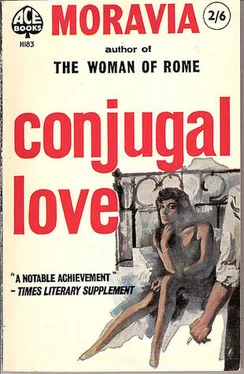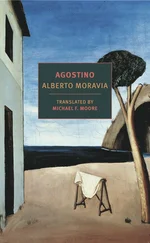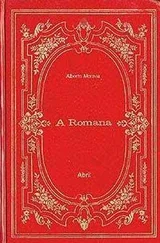Alberto Moravia - Conjugal Love
Здесь есть возможность читать онлайн «Alberto Moravia - Conjugal Love» весь текст электронной книги совершенно бесплатно (целиком полную версию без сокращений). В некоторых случаях можно слушать аудио, скачать через торрент в формате fb2 и присутствует краткое содержание. Год выпуска: 1952, Издательство: Signet, Жанр: Современная проза, на английском языке. Описание произведения, (предисловие) а так же отзывы посетителей доступны на портале библиотеки ЛибКат.
- Название:Conjugal Love
- Автор:
- Издательство:Signet
- Жанр:
- Год:1952
- ISBN:нет данных
- Рейтинг книги:5 / 5. Голосов: 1
-
Избранное:Добавить в избранное
- Отзывы:
-
Ваша оценка:
- 100
- 1
- 2
- 3
- 4
- 5
Conjugal Love: краткое содержание, описание и аннотация
Предлагаем к чтению аннотацию, описание, краткое содержание или предисловие (зависит от того, что написал сам автор книги «Conjugal Love»). Если вы не нашли необходимую информацию о книге — напишите в комментариях, мы постараемся отыскать её.
Alberto Moravia earned his international reputation with frank, finely-observed stories of love and sex at all levels of society. In this new English translation of
, he explores an imperiled relationship with his customary unadorned style, psychological penetration, and narrative art.
Conjugal Love — читать онлайн бесплатно полную книгу (весь текст) целиком
Ниже представлен текст книги, разбитый по страницам. Система сохранения места последней прочитанной страницы, позволяет с удобством читать онлайн бесплатно книгу «Conjugal Love», без необходимости каждый раз заново искать на чём Вы остановились. Поставьте закладку, и сможете в любой момент перейти на страницу, на которой закончили чтение.
Интервал:
Закладка:
She glanced at me and then answered with indifference: 'I didn't put it on because I was bored with it.. . But how did you know?'
'Because yesterday you had it on, and it was obvious.'
She said nothing, and just at that moment the maid came to tell us that dinner was ready. We went into the dining-room and sat down, and my wife helped herself. I noticed then that, contrary to what she had said before, she was clearly not hungry: she had taken only half a spoonful from the dish that was offered to her. I remarked as I helped myself: 'You were so hungry. . and now you won't touch anything.'
She gave me a look of displeasure, as though she were irritated at my having caught her in a contradiction. 'I was wrong,' she said. 'I'm not really in the least hungry… In fact the sight of food makes me feel rather sick.'
'Don't you feel well?' I asked anxiously.
She hesitated, then answered all in one breath, in a very low voice: 'I think I'm all right. . but I'm not hungry.' I noticed that her voice was languid, and her breath seemed almost to fail her between one syllable and the next. Then she was silent, poking about with her fork in her plate; then she put down the fork and sighed deeply, laying her hand on her breast. 'But you don't feel well,' I said, alarmed.
This time she admitted it. 'No… I feel rather oppressed,' she said in an exhausted voice, as though she were going to faint.
'Would you like to lie down on the divan?'
'No.'
'Would you like me to call the maid?'
'No. . but you can give me something to drink.'
I poured her out some wine, and she drank it and it appeared to revive her. The maid brought in the fruit and she did not touch it; I ate a bunch of grapes, slowly, while she looked at me with eyes that seemed to be counting each single grape as I raised it to my mouth. The moment the stripped stalk fell from my hand, she jumped impetuously to her feet, saying: 'Now I'm going to bed.'
'Don't you want any coffee?' I asked, alarmed at her loud, distressed tone of voice, as I followed her into the drawing-room.
'No, no coffee, I want to sleep.' She was standing at the door as she spoke, stiff, impatient, her fingers on the handle.
I told the maid to bring my coffee to the study upstairs and followed my wife, who had already opened the door and was making for the staircase. I joined her and said, in a casual way: 'Now I shall start work.'
'And I shall sleep,' she answered, without turning round.
'Are you sure you haven't a temperature?' I asked, reaching out to place my hand on her forehead. She dodged away and said, impatiently: 'Oh, Silvio, with you it's always necessary to dot the i's and cross the t's. . I'm not well — and that's all there is to it.'
I was silent, feeling slightly embarrassed. When we reached the landing, I took her hand as though to kiss it, hesitated, and then said: 'I want to ask you a favour.'
'What favour?' she asked, with a break in her voice which surprised me.
'Leave a kiss on the first page of my story. . It'll bring me luck.'
She gave a laugh which was at the same time affectionate and forced; but both the affection and the effort seemed to me to be oddly sincere. And she went hastily into my study, exclaiming: 'How superstitious you are!. . How silly you are!. . But just as you like. . '
I turned on the light, but she had already found her way in the darkness to my desk. 'Which is the page?… Tell me which page it is I've got to kiss,' she kept repeating with a sort of feverish enthusiasm.
I went up to her and handed her the first page, on which I had typed nothing but the title: Conjugal Love. She seized hold of it, read out the title aloud, commenting upon it with a grimace which I could not understand, then raised the sheet of paper to her mouth and pressed her lips against it. 'Now are you content?' she said.
Just beneath the title, the page now bore the mark of her lips — two red semicircles, like two flower-petals. I looked at it for some time, with a feeling of satisfaction, and then I said softly: 'Thank you, my dear.'
She raised her hand and quickly stroked my cheek, then moved towards the door, saying hurriedly: 'Good luck with your work, then. . I'm going to go and sleep…. I really feel very tired. . Please don't knock at my door for any reason whatsoever…. I just want to sleep — that's all. . Till tomorrow, then. . '
'Very well… till tomorrow.'
She went out, almost running into the maid who was bringing in the coffee. When she too had gone, I lit a cigarette, sat down at my desk, drank two cups of coffee straight off, and finally took the cover off the typewriter. I was conscious of an extraordinary mental lucidity, as though, instead of the usual confused, unwieldy tangle of vague and contradictory thoughts, my head contained a clean, precise, perfectly adjusted mechanism like that of a weighing-machine or a clock. I felt that this mechanism excluded all vanity, pride, fear and ambition. It was the precision instrument, incorruptible, impersonal, by means of which I was preparing to gauge, to appraise, to perfect my work as I copied it out. A cigarette between my lips, my eyes fixed on my sheet of paper, I started typing, continuing the page which was already half done.
I typed, perhaps, four lines, and then I put down my cigarette in the ashtray, pushed the typewriter to one side, took up the manuscript and began to read it. As I have said, I was feeling exceptionally clear in the head; and now, as I typed the first four lines, I had become conscious of a feeling of falsity which was quite distinct and exactly like the dull sound of a cracked glass. In other words, it had flashed across my mind that the story not merely was not the masterpiece that I had imagined, but was actually bad. As I have already mentioned, I have a certain literary experience and, in given circumstances, am also capable of being a tolerable critic. I realized at that moment that, with my present extraordinary, and aggressive, mental lucidity, my whole critical faculty was brought into play, to an amazing degree, upon the page I held in my hand. The words were no longer mere words but fragments of a metal that I was gradually testing, with perfect certainty, by means of the touchstone of my own taste. I did not read it straight through because I did not wish to be caught up in the rhythm of the narrative; but I read pieces here and there, and the more I read the more disquieted I became. It seemed to me impossible that I was making a mistake now: the story was thoroughly bad, beyond any remedy. All of a sudden, seized by an almost scientific craze for objectivity, I took a sheet of blank paper, grasped my fountain pen and started jotting down my observations as they came into my mind, just as I did when I had a book to review.
At the top of the page I wrote, in a firm hand: 'Remarks upon the story Conjugal Love, by Silvio Baldeschi'; then I drew a line under it and began to make notes. I followed the method I usually adopted in composing my critical articles — that is, analysing the work disconnectedly in all its various aspects and then finally fusing all these detailed observations into one single, comprehensive verdict. Of course I had no intention of writing an article about myself; I merely wished to establish, to a certain extent, the reasons for that first feeling that the story was bad. Also, perhaps, to punish myself for having believed it a masterpiece. But, above all, to reach some clear and final conclusion about my own literary ambitions.
14
THIS is what I wrote on my new page. First: style. And then, underneath, quickly: polished, correct, decorous, but never original, never personal, never fresh. Full of vague generalizations, discursive where it should be brief, brief where it should be discursive, in effect entirely redundant because entirely the result of application. A style without character, the style of a diligent composition in which there is not the slightest trace of poetical feeling. Second: plasticity. None. States things instead of representing them, writes them instead of portraying them. Lack of evident truth, of volume, of solidity. Third: characters. Negative. One feels they were not created by sympathetic intuition but studiously copied and transcribed from nature through the instrumentality — in any case defective — of a judgement that was indecisive, clouded and elementary. They are mosaics of minute but lifeless observations, not living, free creations. They disintegrate, they contradict themselves, they disappear, at moments, from the page, leaving only their names behind; and these names — whether the characters are called Paolo or Lorenzo or Elisa or Maria — betray their unreality because one feels that they could be changed without doing any harm. They are not characters at all, in fact, but photographs out of focus. Fourth: psychological truth. Poor. Too much casuistry, too many subtleties, too many irrelevant remarks, and too little common sense. 'Psychologism', not psychology. One feels that the author moves from outside to inside, at random, not by the main road of truth but along the by-ways of sophistry. Fifth: feeling. Cold and withered, beneath swellings and outbursts and flights which betray its real emptiness and feebleness. Sentimentality, not feeling. Sixth: plot. Ill-constructed, unbalanced, full of incongruities, of subterfuges and padding and other dishonest tricks beneath its apparent efficiency and smoothness. Plenty of deus ex machina and interventions on the part of the author. Movement is confined to the periphery, and is mechanical, for at the centre there is no motive power. Seventh and last: comprehensive verdict. The book of a dilettante, of a person who, though endowed with intelligence, culture and taste, is completely lacking in creative powers. The book fails to reveal anything fresh, or any fresh turn of sensibility. It is a book founded upon other books, it is second or third rate in quality, it is a hot-house product. Practical conclusion: can it be published? Yes, of course, it can certainly be published — why not in an edition de luxe, with one or two lithographs by some good artist? And, after a suitable propaganda drive in literary circles, it could also have what is commonly called a succes d'estime, that is, a number of reviews that are eulogistic, even enthusiastic, according to whether it is worth the reviewers' while, and according to their degree of friendliness towards the author. But the book itself does not count. I underlined this last sentence which summed up everything that I thought about my story, considered for a moment, and then added the following postscript: the fact remains, however, that the book was written in a state of mind of the most perfect and enthusiastic happiness and that it is certainly the best that can be expected from the author. Indeed the latter, while he was writing it, was convinced that he had created a masterpiece. It follows from this that the author expressed himself in the book as he really is — a man lacking in creative feeling, a mere day-dreamer, well-intentioned, sterile. This book is the faithful mirror of such a man.
Читать дальшеИнтервал:
Закладка:
Похожие книги на «Conjugal Love»
Представляем Вашему вниманию похожие книги на «Conjugal Love» списком для выбора. Мы отобрали схожую по названию и смыслу литературу в надежде предоставить читателям больше вариантов отыскать новые, интересные, ещё непрочитанные произведения.
Обсуждение, отзывы о книге «Conjugal Love» и просто собственные мнения читателей. Оставьте ваши комментарии, напишите, что Вы думаете о произведении, его смысле или главных героях. Укажите что конкретно понравилось, а что нет, и почему Вы так считаете.












